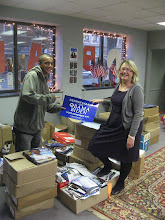“Can I carry the water on my head?” I asked, pointing at the orange plastic bucket she had just filled with fresh water from Lake Malawi.
She spoke quickly in Chichewa to her friends, who all burst out laughing. The white mamma was going to carry water on her head. How funny. How very stupid.
With Julia’s help I manoeuvred the heavy bucket onto my head, and walking very slowly I managed a few shaky yards along the beach, then turned and made my way back, trying hard not to spill a drop while cursing the weak muscles in my upper arms, damaged by years of typing.
She laughed as she took the bucket back.
“Do the boys not work, help you carry water?” I asked Julia, knowing full well what her answer would be.
She looked even more sceptical. Was the white mamma really this stupid?
Again she translated for her friends, who laughed even louder at my eccentricity.
“Boys not carry water,” she replied. “They not work, they play,’’ as if this was the natural order of things – which it seems to be in large parts of Malawi.
Women and girls fetch water, sometimes carrying heavy buckets for miles.
Women and girls cultivate the land, growing food to feed their families.
They prepare the meals, clean the home, have babies, look after sick relatives, and of course, keep their menfolk happy in every way.
Men do work, but jobs in the formal economy are rare, so most wile away the daylight hours lounging under trees, playing boa, a traditional board game, drinking chibuku, a traditional beer, chewing the fat with their friends, content to let the womenfolk toil away in the African sun.
It is the natural order of things.
Al, one of the young Americans to whom we gave a lift yesterday, is particularly perturbed by this aspect of Malawian culture.
As a Peace Corps volunteer he lives in a village so witnesses this gender gap every day.
“I just don’t get it,” he says. “These strong men let the women do all the work, while they drink beer and play games.
“I tell the young boys my mother would be very angry if I treated her with such lack of respect.”
He is rightly proud of his efforts to persuade some of his younger friends in the village that carrying water is not women’s work.
“They watched me carrying water and asked why I didn’t have a wife to do it for me.
“I told them it was men’s work and made me strong. I showed them my muscles, so now I have a couple of them carrying water, so they can build up their muscles.
“But hey, I just don’t get the rest of the guys.”
A quick look at Malawi’s economic statistics explains why the rest of the guys spend their time hanging around. They make stark reading.
- only 29% of the workforce are employed in activities other than subsistence farming
- a mere 11% receive wages or salaries, while 13% are self-employed
- just 8% work in private industry, with 3% each in manufacturing and construction
- only 7% are qualified to secondary school level and above, while 70% have no qualifications at all – four-fifths of the latter group are engaged in subsistence agriculture





No comments:
Post a Comment